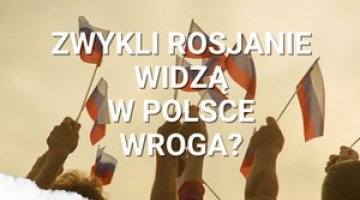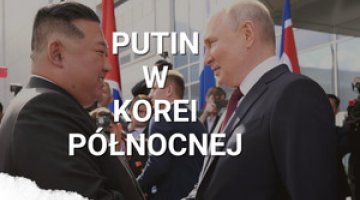Sustaining support: Zelensky and the Ukraine Recovery Conference in Berlin
On 11 June, Ukraine’s president Volodymyr Zelensky opened the Ukraine Recovery Conference (URC) in Berlin, which was hosted jointly by Germany and Ukraine. The event was accompanied by several topical and sectoral meetings, including a Recovery Forum focusing on cooperation between civic societies and local governments, as well as in digital, climate and energy affairs. A significant portion of the event was devoted to the reconstruction of the energy infrastructure which has been targeted during massive Russian strikes since the beginning of spring. Zelensky announced that Ukraine had lost more than 9 GW of its energy generation capacity and around 80% of its thermal energy production capacity, and called on the conference participants to support his country. He said that with the help of its Western partners Ukraine will be able to build 1 GW of energy generation capacity by the end of this year, and another 4 GW in the coming years.
Zelensky also met Chancellor Olaf Scholz, President Frank-Walter Steinmeier and defence minister Boris Pistorius (SPD), and delivered a speech to the Bundestag. He thanked Germany for its financial and military assistance, and argued that any peace agreement with Russia could only be concluded on Ukraine’s terms. Zelensky’s trip to Germany was his third visit to this country since the beginning of Russia’s full-scale invasion of Ukraine.
Commentary
- Despite the efforts made by the conference hosts, this year’s edition of the URC received less publicity in the media and among politicians than in previous years. The Berlin conference was the third such URC; the previous ones were held in 2022 in Lugano and in 2023 in London (see ‘Prezentacja „planu Marshalla” dla Ukrainy’). This may be due to the coincidence of other important events such as the elections to the EP and the commemorations of the 80th anniversary of D-Day, and also to the lack of significant announcements, decisions or initiatives regarding Ukraine’s recovery which might have been expected. The statement issued by the European Commission President Ursula von der Leyen, in which she recalled the decision made in May to transfer the profits generated by frozen Russian state assets to Kyiv and expressed her hope that accession negotiations with Ukraine could be launched by the end of June, can hardly be viewed as such.
- Although Ukraine’s recovery was the leading topic of the conference, Zelensky mainly used the event as an opportunity to mobilise the Western states to increase their military support for Ukraine. He cited estimates regarding damage to energy infrastructure and the threat of a blackout in an attempt to urge the attendees to do “everything possible and impossible” to preserve Ukraine’s energy generation capacity by transferring missile defence systems, in particular Patriots, to Kyiv. The Ukrainian president also encouraged as many states as possible to take part in the peace summit in Switzerland planned for 15–16 June (see ‘Pax Ukrainica. Ukraine’s hopes and expectations ahead of the summit in Switzerland’). He took the opportunity to warn against yielding to pressure to end the conflict as soon as possible and conclude a peace deal, and stressed that the only just method for ending the war is Russia’s military defeat.
- Zelensky’s announcement regarding the construction of 1 GW of energy generation capacity this year and 4 GW in the coming years should be viewed as unrealistic. According to estimates prepared by the Kyiv School of Economics, between February 2022 and the beginning of 2024 Ukraine succeeded in reconstructing just 2.2 GW of its energy generation capacity, and the financial needs linked with this task considerably exceed the value of the funds the donors pledged during the conference. In Berlin, representatives of the European Bank for Reconstruction and Development (EBRD) announced their intention to transfer $1 bn for the reconstruction of Ukraine’s energy infrastructure, while the US has pledged $824 mn, Italy €140 mn, and the EU €15 mn.
- The conference is another stage in organising the process of Ukraine’s recovery, in which Germany intends to play a leading role (see ‘Engaging the private sector. Germany’s plan for the reconstruction of Ukraine’). Compared to the International Expert Conference on the Recovery, Reconstruction and Modernisation of Ukraine held in 2022, the recent event organised in Berlin had a much more extensive agenda, and aside from the official part it featured meetings in the sidelines organised by representatives of governments, business and various NGOs. This was intended to help the conference hosts to present Ukraine’s investment potential, and encourage the attendees to engage the private sector in particular in the recovery process. However, private business remains reluctant to invest in Ukraine due to the ongoing war: in a survey conducted by KPMG among 142 German businesses operating in Ukraine, 53% of the respondents pointed to this issue as an obstacle to long-term investment initiatives.
- The conference was overshadowed by the resignation of Mustafa Nayyem as head of the State Agency for Reconstruction and Development of Infrastructure of Ukraine, which was announced on 10 June. The agency is the key institution responsible for the reconstruction of infrastructure, including energy infrastructure, and for the construction of fortifications. Nayyem cited increasing obstacles to the agency’s operation as the reason for his resignation. He decided to step down, when on 9 June Prime Minister Denys Shmyhal denied his request to attend the URC. Nayyem’s resignation followed the dismissal in May of Oleksandr Kubrakov, deputy prime minister for Ukraine’s recovery and minister for the development of communities, territories and infrastructure (a super-ministry which coordinates the recovery effort). No successor has been appointed and the post remains vacant (Nayyem was a close aide of Kubrakov). The most likely reason for his dismissal was the intention of the influential head of the President’s Office Andriy Yermak to get rid of individuals who enjoy a good reputation & have direct contacts in the West, and to supervise the funds earmarked for Ukraine’s recovery. All this indicates that Ukraine is being affected by organisational chaos and the domination of particular political interests, which in turn undermines the confidence of Western donors.
- The full agenda of Zelensky’s visit to Germany and the holding of the URC are intended to corroborate Germany’s role as Ukraine’s key partner and one of the leading states shaping the West’s stance on the war. During the conference, Germany’s defence ministry announced its intention to transfer another package of military aid to Kyiv worth around €500 mn, including IRIS-T and Patriot missiles. This decision may suggest that the successes in the EP election for the pro-Russian AfD and BSW parties, which have called for the provision of military support to Ukraine to be halted (see ‘The European Parliament election in Germany: a vote of no confidence in the Scholz government’), has not modified the German government’s stance. However, both of these parties will continue to put pressure on the Scholz cabinet in this matter. This pressure will be amplified by some SPD politicians, who support proposals to reduce the scale of arms deliveries to Ukraine and freeze the conflict (see ‘The party of peace: the SPD is sending signals about the freezing of the war in Ukraine’), including in the context of the upcoming elections in Germany’s eastern federal states.




